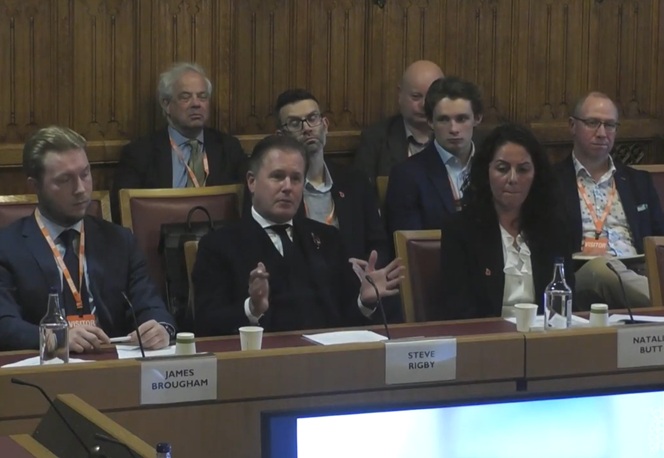Family Business UK (FBUK) Chairman Steve Rigby has warned Peers that proposed inheritance tax reforms risk creating the “worst of all worlds” for family firms, stalling investment, halting growth and undermining confidence across the UK economy.
The warning was made as Steve gave evidence to the House of Lords Finance Bill Sub-Committee, which is inquiring into proposed changes to inheritance tax relief for family business owners, as part of its scrutiny of the Finance Bill.
FBUK has warned of the widespread unintended consequences of the policy, due to be implemented in April 2026, saying it will stifle investment, growth and employment opportunities across the UK’s family business sector.
In his evidence to the committee, Steve Rigby cited data from FBUK’s Taxing Futures research, telling Peers that the proposed reforms are having a chilling effect on the UK economy.
He said the reforms could lead to 208,000 full-time job losses, a £15 billion reduction in gross value added (GVA), and a net fiscal loss of almost £2 billion during the remainder of this Parliament.
“We are in the worst of all worlds at this moment,” Steve told the committee. “Businesses are disincentivised to grow, owners are worried and uncertainty is causing businesses to delay investment or make rash decisions about their future.”
Peers heard how FBUK had put forward several constructive alternatives to mitigate the policy’s impact and was hopeful that Treasury would consider them.
In particular, Steve cited proposals to allow the business itself to assume the inheritance tax liability, rather than the individual, a “zero-sum change” that would preserve Treasury revenues while protecting business continuity.
Steve criticised the aggressive timetable for implementation, adding that the measures had been announced without consultation and without proper consideration of the impacts of the changes, despite FBUK providing the only credible assessment of the measures to the Treasury.
He warned the reforms could force many owners, particularly those with elderly majority shareholders, to make immediate and material decisions affecting the future of their business.
Furthermore, Steve raised serious concerns about the practicality of achieving fair valuations under the new regime, questioning whether HMRC has sufficient capacity to manage the additional complexity.
He was joined by Natalie Butt, Director at Crowe UK LLP, and James Brougham, Senior Economist at Make UK, during the session that focused on Business Property Relief within the Finance Bill.
A second panel later in the afternoon examined Agricultural Property Relief and featured Tom Bradshaw, President of the National Farmers Union; Jeremy Moody, Secretary and Adviser at the Central Association of Agricultural Valuers; and Judicaelle Hammond, Director of Policy & Advice at the Country Land and Business Association.
